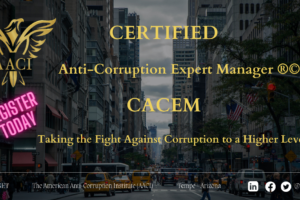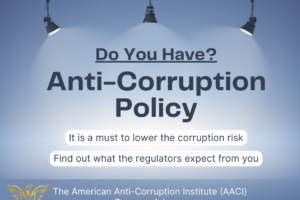Technical Staff
June 3, 2025
Corruption doesn’t always start with a scandal. Sometimes, it begins quietly—through unchecked habits, blind loyalty, or a single compromise. Owner-managers often assume corruption is a big-company problem. It’s not. The truth is simple: every organization is vulnerable if its leadership remains passive. And the most effective deterrence starts not with policies—but with visible, decisive action at the top.
A practical guide for owner-managers who want to act now
If you’re an owner or senior manager ready to shut the door on corruption before it enters, here’s what you must start doing—today.
1. Say it clearly, from the top
Call your team together and make your stance visible. Say something like:
“We don’t allow bribery, favoritism, or theft—no matter who’s involved. We protect this business by being honest.”
Say it often. Put it in writing. Hang it on the wall.
2. Watch the money—personally
Get closer to the flow of money. Ask to see invoices, receipts, and vendor lists.
If one person controls all the payments or collections, change that. Split responsibilities. Review transactions regularly.
3. Make it safe to speak up
Let your employees know:
“If you see something wrong, tell me directly. You won’t be punished—you’ll be respected.”
Then prove it by protecting the first person who steps forward.
4. Act when you see a red flag
Suspicious deal? Missing money? Unusual behavior? Investigate it. Pause transactions. Ask questions. Ignoring early signs invites disaster.
5. Loyalty should never blind you
A long-time employee or family member may still engage in unethical behavior. Never say, “He’d never do that.”
Trust must be earned and verified, especially when it comes to money and influence.
6. Stop the “shortcuts”
Bribing for permits, faking invoices, or offering gifts to win deals may seem harmless. But every shortcut creates a culture of deception.
If you do it, others will do worse.
7. Know who you do business with
Do your suppliers, agents, or consultants follow your values? Ask hard questions. Drop anyone who puts your business at risk.

8. Teach your team, even briefly
Spend just one hour a month talking to your managers about:
a. How to spot fraud
b. What an ethical decision looks like
c. Why corruption kills companies
This small habit will build a stronger team over time.
9. Be the example
Don’t exaggerate reports. Don’t accept under-the-table favors. Don’t lie to auditors or tax officers.
If you cheat, they will cheat. If you’re clean, they’ll follow.
10. Celebrate honesty
When someone does the right thing—reporting a mistake, refusing a bribe—recognize them in front of the team.
Make honesty a badge of honor. ( Read more about Principle # 10: Rewarding corruption fighters )
Corruption doesn’t wait. Neither should you.
Every day you lead with integrity is a day corruption loses power.
It’s not about writing a policy. It’s about showing people where you stand—and proving it with action.
***END***
📩 Stay informed with The AACI Dispatch — monthly insights on corruption prevention, governance, and integrity.
👉 Subscribe here: https://www.linkedin.com/newsletters/the-aaci-dispatch-7321647166328827904/











































